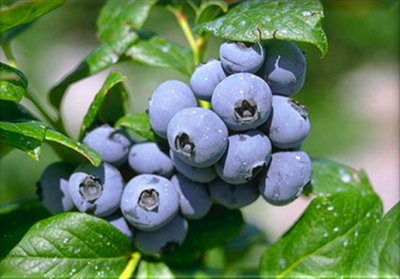
The Integrated Pest Management (IPM) Program is a collaboration between UConn Extension and the Department of Plant Science & Landscape Architecture. Since its inception in 1980, the UConn IPM Program has made great strides in developing and implementing sustainable methods for pest control throughout Connecticut. Integrated Pest Management applies multiple tactics in a variety of settings through the selection of appropriate tools and the education of agricultural industry members and Connecticut citizens to provide sustainable, science-based approaches for the management of plant pests (insects, mites, diseases, wildlife, and weeds, including invasive plants). The UConn IPM Program incorporates all possible crop management and pest management strategies through knowledgeable decision-making, utilizing the most efficient landscape and on-farm resources, and integrating cultural and biological controls. Program objectives include maintaining the economic viability of agricultural and green industry businesses, enhancing and conserving environmental quality and natural resources, educating participants on the effective use of cultural practices to mitigate pest problems, of biological control agents, and educating pesticide users about bee and other pollinator safe materials, least toxic options, and the safe use and handling of organic and synthetic pesticide products. The 2020 IPM Program Team included Mary Concklin (fruit and IPM Coordinator), Leanne Pundt (greenhouse), Victoria Wallace (school, invasive, pollinators, turf and landscape), Jacob Ricker (nursery), Ana Legrand (vegetables), Shuresh Ghimire (vegetables), Abby Beissinger (diagnostician, resigned August 2020), Miriah Kelly (program evaluation, resigned August 2020) and Candace Bartholomew (pesticide safety education, retired fall 2020).
The goal of IPM is to reduce the dependence of agricultural producers and green industry professionals, Connecticut citizens, and schools on pesticides while maintaining or improving productivity, crop quality, and quality of life. The IPM Program has educated growers statewide about the judicious and safe use of organic and synthetic pesticides and alternative pest control methods.
Broader adoption of IPM practices enhances responsible pest management and reduced management and production costs; minimizes adverse environmental and economic effects from pests and pest management; results in improved ecosystem quality and plant performance; and improves plant health, quality, yields, and aesthetics. The use of IPM includes cultural controls; biological control agents; biological fungicides; physical and mechanical controls; the use of resistant cultivars; regulatory controls; behavioral modification; and, only when necessary, chemical controls, with the selection of least toxic products. IPM partners and collaborators include State and Federal agricultural and environmental/non-governmental agencies and organizations; State, New England, and Northeastern fruit, greenhouse, grounds keepers, nursery, turf, landscape, and vegetable associations; industry suppliers/dealers; regional universities; educators; schools and municipalities; individual growers, farmers, and producers; Master Gardeners; and the general public.
COVID-19 impacted many outreach programs usually conducted face-to-face. However, our team members quickly adapted and offered many programs virtually, while others have been postponed until 2021 and 2022. In 2020 preCOVID-19 and in “normal” years, IPM Program team members conduct intensive on-site educational training for fruit and vegetable producers, garden center owners, greenhouse growers, nursery producers and retailers, and turf and landscape professionals. Growers and green industry professionals receive information on the current status of and recommendations for important plant pests and training via pest messages, email alerts, webinars, newsletters, articles in national trade journals, management guides, websites, social media, consultations and counseling via phone and text, site visits to their operations, workshops, field demonstrations and research projects, conferences, exhibits, and short courses. IPM programs are evaluated through pre- and/or post-program surveys and evaluations, needs assessment surveys, focus groups, key informant interviews, testimonials, and unsolicited comments.